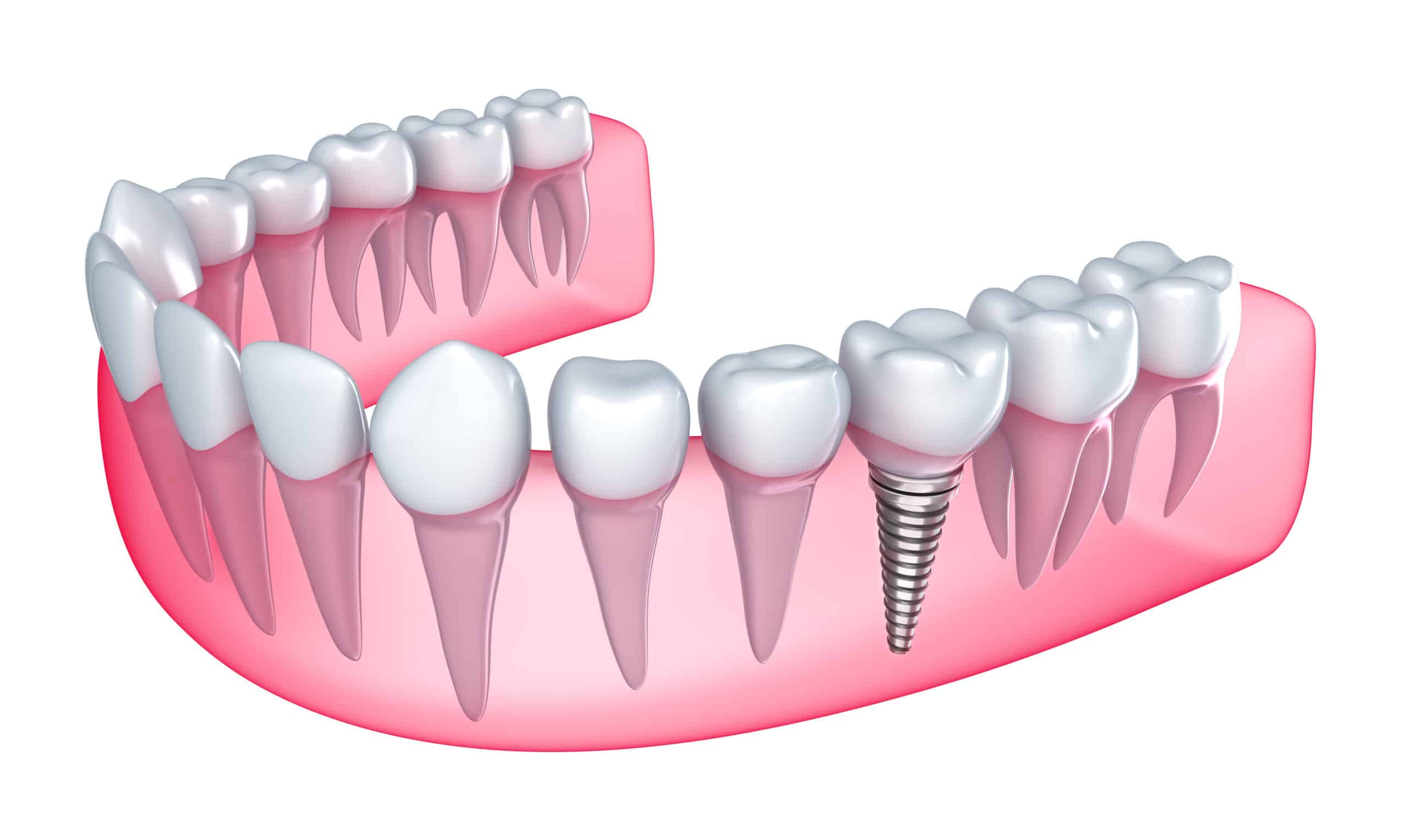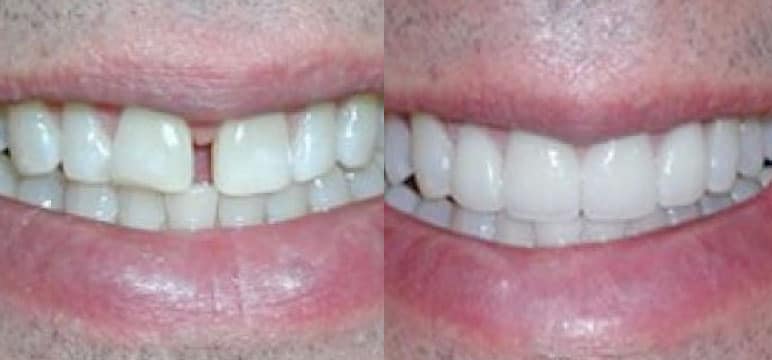
Choosing the Right Dental Implant for Your Needs
Complete Upper Replacement
This method is the key to achieving a fully restored upper set of teeth. It entails replacing all upper teeth with meticulously crafted synthetic teeth securely anchored by implants. This comprehensive solution addresses all missing tooth roots and provides complete upper tooth restoration, ensuring a confident and radiant smile.
Full Lower Replacement
This procedure focuses on the lower teeth like a complete upper replacement. It involves the replacement of all lower teeth with durable synthetic teeth supported by dental implants. This approach establishes a secure and robust foundation for all your lower teeth, allowing you to enjoy a solid and functional smile.
Anterior Replacement
Our dental specialists excel in anterior replacements, especially regarding the easily accessible and visible front teeth. Whether you have a single missing tooth or several, we expertly fill the root area and meticulously attach replacement teeth. Precision and aesthetics are at the forefront of our approach, ensuring that your front teeth are functional and beautifully restored.
Posterior Replacement
Our posterior replacement approach is just as customizable as our anterior method for the more prominent teeth at the back of your mouth. Whether you need to replace a single tooth or restore an entire row with implants, we have the expertise to address your needs.
Why It’s Done
Dental implants at Big Smile Dental in Chicago, IL, represent a revolutionary advancement in dental restoration. They are primarily done to replace missing teeth, offering a solution that closely mimics natural teeth in appearance and function. Dental implants provide a permanent base for replacement teeth, unlike dentures or bridges. They are surgically implanted into the jawbone, fusing with the bone over time, offering unparalleled stability and preventing bone loss. This fusion, known as osseointegration, makes implants a robust and long-lasting solution.
Implants are not just about aesthetics; they play a crucial role in oral health. They help maintain the jawbone’s integrity, preventing the bone loss that often occurs with missing teeth. This preservation of bone structure also helps maintain facial contours, preventing the sunken look often associated with tooth loss. Additionally, implants improve oral function, allowing for better chewing and speech than other tooth replacement options.
At Big Smile Dental, we recommend dental implants for various situations – from replacing a single tooth to an entire arch. They are ideal for patients who have lost teeth due to decay, periodontal disease, or injury. The suitability for dental implants is determined by several factors, including general health, the gums’ health, and the jawbone’s density. Our comprehensive evaluation ensures dental implants are the right choice for your dental needs and overall health.
How You Prepare
Preparation for dental implants at Big Smile Dental is a thorough and meticulous process, ensuring the highest success rate for your implant surgery. Initially, a comprehensive dental exam is conducted, including X-rays and 3D images, to assess the condition of your oral health. This step is crucial for planning the implant procedure, as it helps determine the implant’s optimal placement and the need for any additional functions, such as bone grafting.
Our team will review your medical history, including any medications you’re taking and any medical conditions that could affect the surgery. This review is vital to prevent complications and tailor the treatment plan to your needs. We also discuss anesthesia options to ensure your comfort during the procedure.
Patients are advised on pre-surgery preparations, such as arranging for someone to drive them home and planning for a recovery period. We recommend avoiding certain habits, like smoking, as they can affect the healing process. Our team provides detailed instructions on what to eat and avoid before the surgery and how to prepare your home for a comfortable recovery.
What You Can Expect
You can expect a multi-stage process when you undergo dental implant surgery at Big Smile Dental. The first stage involves placing the implant in your jawbone, a procedure performed under local anesthesia or sedation. Post-surgery, there may be some discomfort, such as swelling, bruising, minor bleeding, and pain, which can be managed with medications.
The healing process, where the implant integrates with your jawbone, is crucial. This period, known as osseointegration, can take several months. During this time, you might have temporary crowns placed and be advised on a diet of soft foods.
Once osseointegration is complete, additional minor procedures may be necessary to place the abutment — the piece where the crown will eventually attach. Finally, after your gums heal, the custom-made crown is placed, completing the process. Throughout these stages, regular follow-ups at Big Smile Dental are essential to monitor your progress and ensure the success of the implant.
When Bone Grafting is Required
Bone grafting is a procedure that becomes necessary when a patient’s jawbone is not thick enough or is too soft to hold the implant securely. At Big Smile Dental, we assess the quality of your jawbone during the initial consultation. If bone grafting is required, it involves taking a section of bone from another area of your body or using a particular bone grafting material and grafting it onto your jawbone.
The bone grafting process requires several months to heal and create a solid enough base for an implant. The duration of the healing process varies depending on the individual and the extent of the grafting done. Our team at Big Smile Dental ensures that each step of this process is done with the utmost care and precision, setting a solid foundation for the success of your dental implants.
Placing the Dental Implant
The dental implant placement is a precise and skillful procedure performed at Big Smile Dental. Once the area is ready and the jawbone is prepared or healed after bone grafting, the dental implant — a small post made of titanium — is placed into the missing tooth’s bone socket. This surgery is typically performed under local anesthesia, and our team takes every precaution to ensure your comfort and safety.
After the implant is placed, the healing process begins, allowing the jawbone to grow around the implanted metal post, anchoring it securely in the jaw. This integration process can take several months, during which you may have temporary crowns or bridges placed to wear over the implant site.
Once the implant has bonded with the jawbone, a small connector post, called an abutment, is attached to the post securely to hold the new tooth. After the gums heal, impressions of your teeth are made, and the final tooth or teeth are created and attached to the abutment, completing your smile restoration. Our team at Big Smile Dental ensures that each step is carried out with precision and care, leading to a successful and satisfying outcome.
Waiting for Bone Growth
The journey to your new smile begins with a small titanium post-implantation into your jawbone. This post serves as a sturdy anchor for your new teeth. After the implant is placed, a crucial phase known as osseointegration begins. During this period, your jawbone grows around and bonds with the surface of the dental implant. This process is vital to form a strong and stable foundation for your new tooth. The duration of this bone growth process varies among individuals and can take several months. At Big Smile Dental, we closely monitor this process to ensure the best foundation for your implant.
Placing the Abutment
Once the implant has integrated with the jawbone, the next step is placing the abutment. The abutment is a small connector post that will hold the new tooth. The abutment can sometimes be recognized during the initial implant surgery. However, if not, a minor follow-up surgery is required to attach it. This procedure is typically less invasive and involves opening the gum to expose the implant and attach the abutment. After the abutment is placed, the gum tissue needs time to heal before the artificial tooth can be attached.
Choosing Your New Artificial Teeth
After your gums heal, we move on to the exciting part – choosing your new teeth. You have options between a removable implant prosthesis and a fixed one. Removable options are similar to conventional dentures (can be taken out for cleaning), while fixed options are permanently screwed or cemented onto the abutment. We work closely with you at Big Smile Dental to select the best option that suits your lifestyle, aesthetic preferences, and oral health needs.
After the Procedure
Post-procedure care is crucial for the success and longevity of your dental implants. While implants do not decay, gum health is vital to maintaining your new smile. We provide comprehensive aftercare instructions and recommend regular check-ups and cleanings. It’s normal to experience some swelling, bruising, or minor discomfort after the procedure, but these symptoms are typically manageable and temporary.
Results
Dental implants from Big Smile Dental can significantly improve your quality of life. Not only do they restore the function and appearance of your natural teeth, but they also provide a long-term solution for tooth loss. With proper care and maintenance, implants can last a lifetime. Our patients often report a boost in confidence and satisfaction with their new, strong, beautiful smiles.
Essential Information You Should Be Aware Of
How Long Do Dental Implants Last?
At Big Smile Dental, one of the most common questions we receive is about the longevity of dental implants. The durability of dental implants is one of their most appealing features. With proper care and maintenance, dental implants can last a lifetime. The implant, surgically placed into the jawbone, is made of titanium, a material known for its strength and compatibility with the human body. This metal integrates with your jawbone in a process known as osseointegration, forming a sturdy and durable foundation for the replacement tooth.
The lifespan of a dental implant also depends on several factors, including the patient’s oral hygiene practices and lifestyle choices. Regular brushing, flossing, routine dental check-ups, and cleanings are essential in maintaining the implant’s health. Avoiding habits like smoking can also significantly extend the life of a dental implant. Additionally, the location of the implant in the mouth can affect its longevity; implants in the back of the mouth receive more strain from chewing, which can cause them to wear out more quickly than those in the front.
How Long Is the Healing Process?
The healing process after receiving a dental implant is a crucial component of the overall success of the procedure. At Big Smile Dental, we emphasize that the healing time can vary depending on the patient and specific circumstances. Typically, the healing process can take a few weeks to several months.
After the implant is placed, the process of osseointegration begins, where the implant fuses with the jawbone. This is a gradual process that ensures the implant is securely anchored. The time it takes for this process to complete can vary based on individual healing rates, the number of implants placed, and whether additional procedures like bone grafting are necessary. It’s important to follow post-operative care instructions carefully, including dietary adjustments and oral hygiene practices, to support proper healing.
Patients will have follow-up appointments at Big Smile Dental to monitor the healing process and ensure everything is progressing as expected. Attending these appointments and promptly communicating any concerns or unusual symptoms to your dentist is essential.
Can Anyone Get Dental Implants?
Generally, if you’re in good health and can undergo routine dental extractions or surgeries, you’re likely a candidate for dental implants. It’s essential to have healthy gums, free from periodontal disease, and enough bone density to anchor the implant securely. Commitment to excellent oral hygiene and regular dental visits is also crucial. However, certain conditions require special consideration. Heavy smokers, individuals with uncontrolled chronic conditions like diabetes or heart disease, or those who have undergone radiation therapy in the head or neck area may need individual assessments. To determine if dental implants are suitable, we encourage a consultation with our dental experts at Big Smile Dental.
Understanding Pain and Discomfort in Dental Implant Procedures
The experience of pain during dental implant procedures is highly subjective and varies from individual to individual. Fortunately, advancements in modern techniques and the widespread use of anesthesia have significantly contributed to managing and minimizing discomfort. While some degree of pain is expected once the anesthesia wears off following the implant procedure, it is typically well-tolerated.
Using anesthesia ensures that patients remain comfortable and pain-free during the dental implant surgery. This means you should not feel any pain while the dental implants are placed in your jawbone. However, as with any surgical procedure, it is expected to experience some mild discomfort once the effects of anesthesia subside.
If you’re interested in more information about dental veneers or other dental restorative options, call Big Smile Dental today! Our team is happy to schedule a consultation at a time that works with your schedule.
Your new smile is waiting for you!


